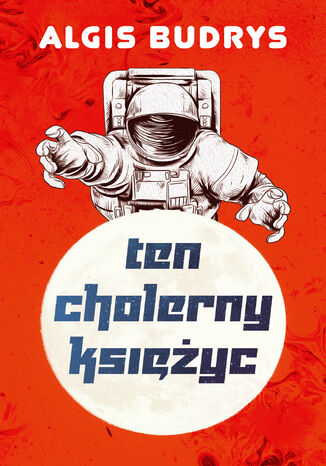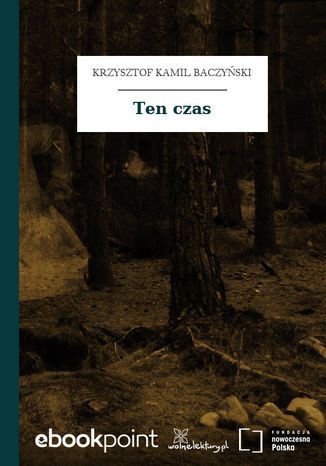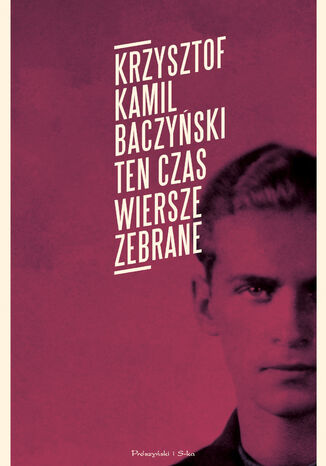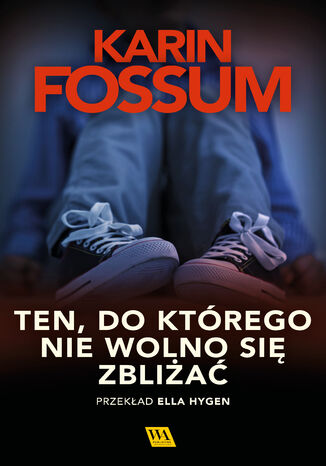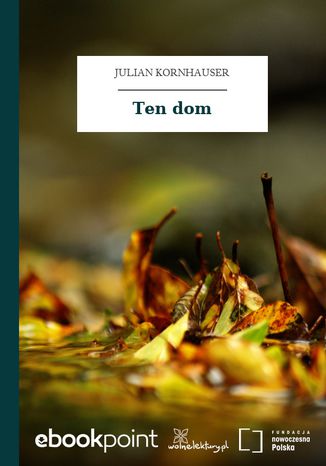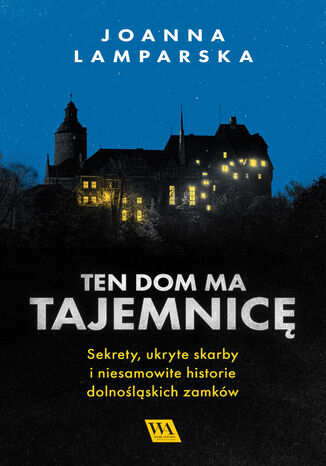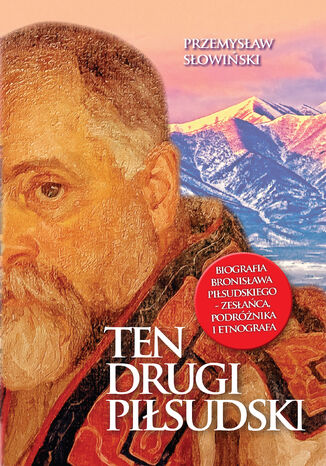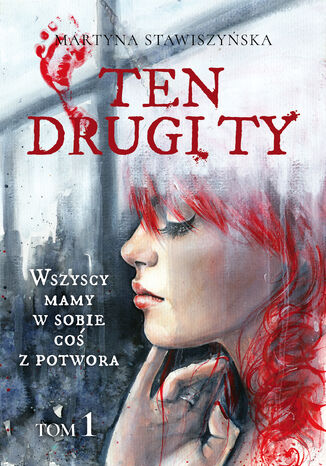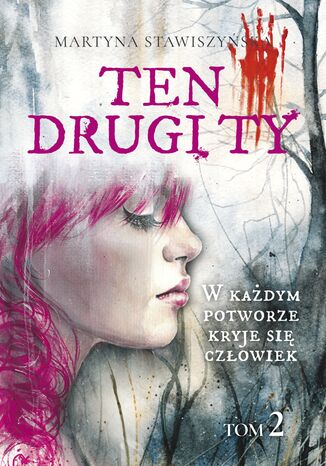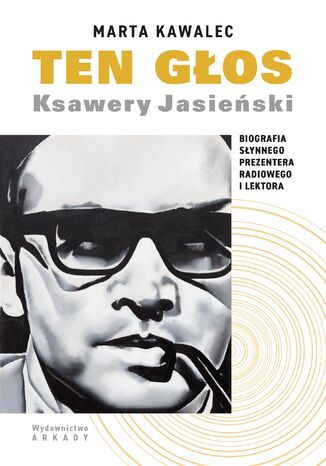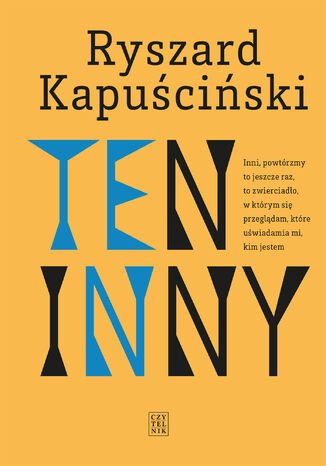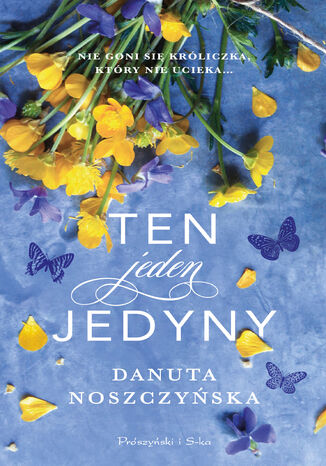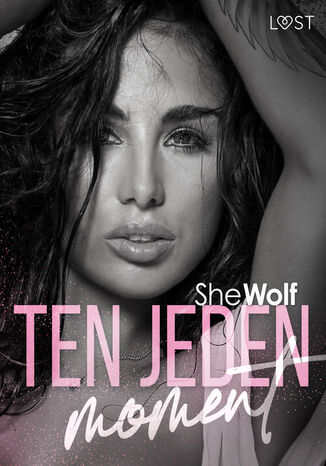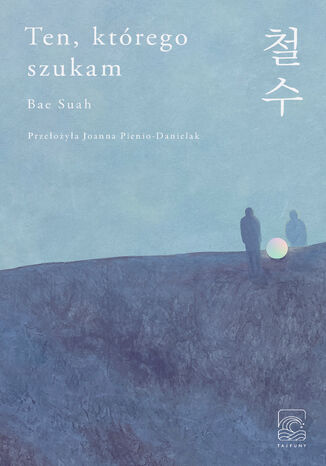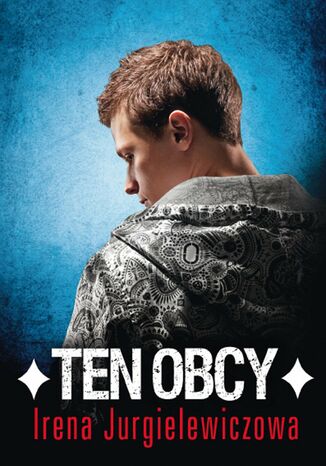Kategorien
E-Books
-
Wirtschaft
- Bitcoin
- Geschäftsfrau
- Coaching
- Controlling
- E-Business
- Ökonomie
- Finanzen
- Börse und Investitionen
- Persönliche Kompetenzen
- Computer im Büro
- Kommunikation und Verhandlungen
- Kleines Unternehmen
- Marketing
- Motivation
- Multimedia-Training
- Immobilien
- Überzeugung und NLP
- Steuern
- Sozialpolitik
- Handbȕcher
- Präsentationen
- Führung
- Public Relation
- Berichte, Analysen
- Geheimnis
- Social Media
- Verkauf
- Start-up
- Ihre Karriere
- Management
- Projektmanagement
- Personal (HR)
-
Für Kinder
-
Für Jugendliche
-
Bildung
-
Enzyklopädien, Wörterbücher
-
E-Presse
- Architektura i wnętrza
- Sicherheit und Gesundheit am Arbeitsplatz
- Biznes i Ekonomia
- Haus und Garten
- E-Business
- Ekonomia i finanse
- Esoterik
- Finanzen
- Persönliche Finanzen
- Unternehmen
- Fotografie
- Informatik
- HR und Gehaltsabrechnung
- Frauen
- Computer, Excel
- Buchhaltung
- Kultur und Literatur
- Wissenschaftlich und akademisch
- Umweltschutz
- meinungsbildend
- Bildung
- Steuern
- Reisen
- Psychologie
- Religion
- Landwirtschaft
- Buch- und Pressemarkt
- Transport und Spedition
- Gesundheit und Schönheit
-
Geschichte
-
Informatik
- Office-Programme
- Datenbank
- Bioinformatik
- IT Branche
- CAD/CAM
- Digital Lifestyle
- DTP
- Elektronik
- Digitale Fotografie
- Computergrafik
- Spiele
- Hacking
- Hardware
- IT w ekonomii
- Wissenschaftliche Pakete
- Schulbücher
- Computergrundlagen
- Programmierung
- Mobile-Programmierung
- Internet-Server
- Computernetzwerke
- Start-up
- Betriebssysteme
- Künstliche Inteligenz
- Technik für Kinder
- Webmaster
-
Andere
-
Fremdsprachen lernen
-
Kultur und Kunst
-
Lektüre
-
Literatur
- Anthologien
- Ballade
- Biografien und Autobiografien
- Für Erwachsene
- Drama
- Tagebücher, Memoiren, Briefe
- Epos
- Essay
- Science Fiction
- Felietonys
- Fiktion
- Humor, Satire
- Andere
- Klassisch
- Krimi
- Sachbücher
- Belletristik
- Mity i legendy
- Nobelpreisträger
- Kurzgeschichten
- Gesellschaftlich
- Okultyzm i magia
- Erzählung
- Erinnerungen
- Reisen
- Gedicht
- Poesie
- Politik
- Populärwissenschaftlich
- Roman
- Historischer Roman
- Prosa
- Abenteuer
- Journalismus
- Reportage
- Romans i literatura obyczajowa
- Sensation
- Thriller, Horror
- Interviews und Erinnerungen
-
Naturwissenschaften
-
Sozialwissenschaften
-
Schulbücher
-
Populärwissenschaft und akademisch
- Archäologie
- Bibliotekoznawstwo
- Filmwissenschaft
- Philologie
- Polnische Philologie
- Philosophie
- Finanse i bankowość
- Erdkunde
- Wirtschaft
- Handel. Weltwirtschaft
- Geschichte und Archäologie
- Kunst- und Architekturgeschichte
- Kulturwissenschaft
- Linguistik
- Literaturwissenschaft
- Logistik
- Mathematik
- Medizin
- Geisteswissenschaften
- Pädagogik
- Lehrmittel
- Populärwissenschaftlich
- Andere
- Psychologie
- Soziologie
- Theatrologie
- Teologie
- Theorien und Wirtschaftswissenschaften
- Transport i spedycja
- Sportunterricht
- Zarządzanie i marketing
-
Handbȕcher
-
Spielanleitungen
-
Professioneller und fachkundige Leitfaden
-
Jura
- Sicherheit und Gesundheit am Arbeitsplatz
- Geschichte
- Verkehrsregeln. Führerschein
- Rechtswissenschaften
- Gesundheitswesen
- Allgemeines. Wissenskompendium
- akademische Bücher
- Andere
- Bau- und Wohnungsrecht
- Zivilrecht
- Finanzrecht
- Wirtschaftsrecht
- Wirtschafts- und Handelsrecht
- Strafrecht
- Strafrecht. Kriminelle Taten. Kriminologie
- Internationales Recht
- Internationales und ausländisches Recht
- Gesundheitsschutzgesetz
- Bildungsrecht
- Steuerrecht
- Arbeits- und Sozialversicherungsrecht
- Öffentliches, Verfassungs- und Verwaltungsrecht
- Familien- und Vormundschaftsrecht
- Agrarrecht
- Sozialrecht, Arbeitsrecht
- EU-Recht
- Industrie
- Agrar- und Umweltschutz
- Wörterbücher und Enzyklopädien
- Öffentliche Auftragsvergabe
- Management
-
Führer und Reisen
- Afrika
- Alben
- Südamerika
- Mittel- und Nordamerika
- Australien, Neuseeland, Ozeanien
- Österreich
- Asien
- Balkan
- Naher Osten
- Bulgarien
- China
- Kroatien
- Tschechische Republik
- Dänemark
- Ägypten
- Estland
- Europa
- Frankreich
- Berge
- Griechenland
- Spanien
- Niederlande
- Island
- Litauen
- Lettland
- Mapy, Plany miast, Atlasy
- Miniführer
- Deutschland
- Norwegen
- Aktive Reisen
- Polen
- Portugal
- Andere
- Przewodniki po hotelach i restauracjach
- Russland
- Rumänien
- Slowakei
- Slowenien
- Schweiz
- Schweden
- Welt
- Türkei
- Ukraine
- Ungarn
- Großbritannien
- Italien
-
Psychologie
- Lebensphilosophien
- Kompetencje psychospołeczne
- zwischenmenschliche Kommunikation
- Mindfulness
- Allgemeines
- Überzeugung und NLP
- Akademische Psychologie
- Psychologie von Seele und Geist
- Arbeitspsychologie
- Relacje i związki
- Elternschafts- und Kinderpsychologie
- Problemlösung
- Intellektuelle Entwicklung
- Geheimnis
- Sexualität
- Verführung
- Aussehen ind Image
- Lebensphilosophien
-
Religion
-
Sport, Fitness, Diäten
-
Technik und Mechanik
Hörbücher
-
Wirtschaft
- Bitcoin
- Geschäftsfrau
- Coaching
- Controlling
- E-Business
- Ökonomie
- Finanzen
- Börse und Investitionen
- Persönliche Kompetenzen
- Kommunikation und Verhandlungen
- Kleines Unternehmen
- Marketing
- Motivation
- Immobilien
- Überzeugung und NLP
- Steuern
- Sozialpolitik
- Handbȕcher
- Präsentationen
- Führung
- Public Relation
- Geheimnis
- Social Media
- Verkauf
- Start-up
- Ihre Karriere
- Management
- Projektmanagement
- Personal (HR)
-
Für Kinder
-
Für Jugendliche
-
Bildung
-
Enzyklopädien, Wörterbücher
-
E-Presse
-
Geschichte
-
Informatik
-
Andere
-
Fremdsprachen lernen
-
Kultur und Kunst
-
Lektüre
-
Literatur
- Anthologien
- Ballade
- Biografien und Autobiografien
- Für Erwachsene
- Drama
- Tagebücher, Memoiren, Briefe
- Epos
- Essay
- Science Fiction
- Felietonys
- Fiktion
- Humor, Satire
- Andere
- Klassisch
- Krimi
- Sachbücher
- Belletristik
- Mity i legendy
- Nobelpreisträger
- Kurzgeschichten
- Gesellschaftlich
- Okultyzm i magia
- Erzählung
- Erinnerungen
- Reisen
- Poesie
- Politik
- Populärwissenschaftlich
- Roman
- Historischer Roman
- Prosa
- Abenteuer
- Journalismus
- Reportage
- Romans i literatura obyczajowa
- Sensation
- Thriller, Horror
- Interviews und Erinnerungen
-
Naturwissenschaften
-
Sozialwissenschaften
-
Populärwissenschaft und akademisch
- Archäologie
- Philosophie
- Wirtschaft
- Handel. Weltwirtschaft
- Geschichte und Archäologie
- Kunst- und Architekturgeschichte
- Kulturwissenschaft
- Literaturwissenschaft
- Mathematik
- Medizin
- Geisteswissenschaften
- Pädagogik
- Lehrmittel
- Populärwissenschaftlich
- Andere
- Psychologie
- Soziologie
- Teologie
- Zarządzanie i marketing
-
Handbȕcher
-
Professioneller und fachkundige Leitfaden
-
Jura
-
Führer und Reisen
-
Psychologie
- Lebensphilosophien
- zwischenmenschliche Kommunikation
- Mindfulness
- Allgemeines
- Überzeugung und NLP
- Akademische Psychologie
- Psychologie von Seele und Geist
- Arbeitspsychologie
- Relacje i związki
- Elternschafts- und Kinderpsychologie
- Problemlösung
- Intellektuelle Entwicklung
- Geheimnis
- Sexualität
- Verführung
- Aussehen ind Image
- Lebensphilosophien
-
Religion
-
Sport, Fitness, Diäten
-
Technik und Mechanik
Videokurse
-
Datenbank
-
Big Data
-
Biznes, ekonomia i marketing
-
Cybersicherheit
-
Data Science
-
DevOps
-
Für Kinder
-
Elektronik
-
Grafik / Video / CAX
-
Spiele
-
Microsoft Office
-
Entwicklungstools
-
Programmierung
-
Persönliche Entwicklung
-
Computernetzwerke
-
Betriebssysteme
-
Softwaretest
-
Mobile Geräte
-
UX/UI
-
Web development
-
Management
Podcasts
Klasyczna powieść science fiction opowiadająca o człowieku jako istocie wiecznie szukającej i badającej z narażeniem życia coraz to nowe obszary. Doktor Edward Hawks prowadzi na zlecenie amerykańskiej marynarki wojennej ściśle tajne badania nad tajemniczym obiektem znalezionym na Księżycu. Wszyscy ochotnicy, którzy mieli odwagę wejść do niego są zabijani za łamanie nieznanych obcych zasad panujących wewnątrz. Kolejnym śmiałkiem, który zostaje wysłany do eksploracji obiektu jest Al Barker człowiek, który nieraz patrzył śmierci w twarz. Teraz również nie zawaha się wykonać kolejnego nadludzkiego zadania
Ten czas Miła moja, kochana. Taki to mroczny czas. Ciemna noc, tak już dawno ciemna noc, a bez gwiazd, po której drzew upiory wydarte ziemi -- drżą. Smutne nieba nad nami jak krzyż złamanych rąk. Głowy dudnią po ziemi, noce schodzą do dnia, dni do nocy odchodzą, nie łodzie -- trumny rodzą, w świat grobami odchodzą, odchodzi czas we snach. A serca -- tak ich mało, a usta -- tyle ich. My sami -- tacy mali, krok jeszcze -- przejdziem w mit. [...]Krzysztof Kamil BaczyńskiUr. 22 stycznia 1921 r. w Warszawie Zm. 4 sierpnia 1944 r. w Warszawie Najważniejsze dzieła: Pokolenie, Historia, Bez imienia, Dwie miłości, Z głową na karabinie Poeta, rysownik. Twórczość poetycką rozpoczął już jako uczeń gimnazjum im. Stefana Batorego w Warszawie, gdzie w 1939 r. zdał maturę. Związany ze środowiskiem młodzieży lewicowej, m.in. z organizacją Spartakus działającą półlegalnie w szkołach średnich. W czasie okupacji niemieckiej zbliżył się do ugrupowań socjalistycznych, wydających podziemne pisma ?Płomienie? i ?Droga?. Od 1943 r. uczestniczył w tajnych kompletach polonistycznych, w tymże roku wstąpił do Harcerskich Grup Szturmowych, które stały się zalążkiem batalionu AK ?Zośka? oraz ukończył konspiracyjną szkołę podchorążych rezerwy. Uczestnik powstania warszawskiego; poległ w walce przy Placu Teatralnym (Pałac Blanka); w parę tygodni później zginęła w powstaniu żona poety Barbara, którą poślubił w 1942 r. Nie licząc dwóch zbiorków odbitych na hektografie w 7 egzemplarzach w 1940 r. i kilku wierszy w antologiach Pieśń niepodległa i Słowo prawdziwe, zdążył ogłosić, pod pseudonimem Jan Bugaj, dwa konspiracyjne zbiory: Wiersze wybrane (1942) i Arkusz poetycki (1944) wydane nakładem ?Drogi?. Kupując książkę wspierasz fundację Nowoczesna Polska, która propaguje ideę wolnej kultury. Wolne Lektury to biblioteka internetowa, rozwijana pod patronatem Ministerstwa Edukacji Narodowej. W jej zbiorach znajduje się kilka tysięcy utworów, w tym wiele lektur szkolnych zalecanych do użytku przez MEN, które trafiły już do domeny publicznej. Wszystkie dzieła są odpowiednio opracowane - opatrzone przypisami oraz motywami.
Najpełniejszy zbiór wierszy Baczyńskiego w jednym tomie. Swojej matce powiedział: "Mamo, ja muszę bardzo szybko i w krótkim czasie przeżyć całe życie". Dlatego Krzysztof Kamil Baczyński głodny życia pisał intensywnie i dużo. Od najczulszych erotyków do żony Barbary Drapczyńskiej, po wstrząsające wojenne obrazy będące wyrazem okupacyjnej tragedii jego pokolenia. Mijają kolejne dekady, a jego talent i wrażliwość wciąż fascynują następne pokolenia. Krzysztof Kamil Baczyński (19211944) absolwent gimnazjum im. Stefana Batorego w Warszawie, student polonistyki na tajnym Uniwersytecie Warszawskim. Poeta, podchorąży Armii Krajowej, uczestnik Powstania Warszawskiego, podharcmistrz Szarych Szeregów, żołnierz batalionu "Parasol". Uważany za najwybitniejszego poetę czasu okupacji. Za życia opublikował cztery tomiki poezji oraz wiele utworów prasie i wydawnictwach konspiracyjnych. Zginał 4 sierpnia 1944 roku od kuli niemieckiego snajpera na posterunku w pałacu Blanka. Miał zaledwie 23 lata.
Ten, do którego nie wolno się zbliżać
W ciepły wrześniowy dzień podczas niedzielnego spaceru po lesie pewne małżeństwo spotyka mężczyznę. Nieznajomy jest zdenerwowany, nie odwzajemnia ich uśmiechu i czym prędzej odchodzi. Po jakimś czasie spacerowicze dostrzegają coś między drzewami. Z przerażeniem odkrywają, że to nagie zwłoki małego chłopca. Na miejsce zdarzenia zostaje wezwany komisarz Konrad Sejer, jednak jego dochodzenie nie przynosi oczekiwanych rezultatów. Mijają tygodnie, a mężczyzny z lasu nadal nie udaje się odnaleźć. Wśród spokojnej niegdyś społeczności panuje coraz większy strach, a sytuacja pogarsza się, gdy na jaw wychodzi, że zaginął inny chłopiec i nikt nie może go znaleźć. Karin Fossum to norweska królowa zbrodni. Największą popularność przyniosła jej seria kryminałów o inspektorze Sejerze. Przetłumaczono ją na kilkanaście języków, a wybrane części otrzymały nagrodę za najlepszą powieść kryminalną w krajach skandynawskich. Autorka w swoich książkach skupia się przede wszystkim na motywacjach morderców i logice stojącej za dokonywanymi zbrodniami. Pisarka obnaża mechanizmy strachu, szaleństwa i cierpienia.
Julian Kornhauser Zjadacze kartofli Ten dom Ten dom, przykryty dachem słońca, pachnący tynkiem, ten dom, odwrócony twarzą do rzeki, która w biegu gubi szalik trawy, ten dom, to drzewo ukrytych wiadomości, to oko niewdzięcznej ulicy, ten dom, który stracił zaufanie do okien, t... Julian Kornhauser ur. 20 września 1946 Najważniejsze dzieła: Nastanie święto i dla leniuchów (1972), W fabrykach udajemy smutnych rewolucjonistów (1973), Zabójstwo (1973), Świat nie przedstawiony (wraz z Adamem Zagajewskim, 1974), Stan wyjątkowy (1978), Zjadacze Kartofli (1978) Poeta, prozaik, krytyk literacki, znawca i tłumacz literatury serbo-chorwackiej, profesor Instytutu Filologii Słowiańskiej Uniwersytetu Jagiellońskiego. W PRL-u działacz opozycji. Jeden z czołowych reprezentantów poetyckiej Nowej Fali lat 70, wraz z Adamem Zagajewskim współautor kluczowej dla tego nurtu książki krytycznej Świat nie przedstawiony. Od innych przedstawicieli nurtu odróżnia go kontrolowana skłonność do surrealistycznego obrazowania, elementy symbolizmu i zwrot ku tematyce prywatnej. Kupując książkę wspierasz fundację Nowoczesna Polska, która propaguje ideę wolnej kultury. Wolne Lektury to biblioteka internetowa, rozwijana pod patronatem Ministerstwa Edukacji Narodowej. W jej zbiorach znajduje się kilka tysięcy utworów, w tym wiele lektur szkolnych zalecanych do użytku przez MEN, które trafiły już do domeny publicznej. Wszystkie dzieła są odpowiednio opracowane - opatrzone przypisami oraz motywami.
Ten dom ma tajemnicę. Sekrety, ukryte skarby i niesamowite historie dolnośląskich zamków
Czas odkryć tajemnice i odkopać ukryte skarby! Czy wiecie, że w 1924 roku w Ziębicach mieszkał z pozoru spokojny i pobożny mężczyzna, który tak naprawdę zabijał ludzi i sprzedawał ich mięso? Albo że do pałacu w Morawie trafiły najcenniejsze z polskich kolekcji skradzionych przez nazistów w czasie II wojny światowej, w tym "Portret młodzieńca" Rafaela czy "Dama z łasiczką" da Vinci. Albo że do dziś niektórzy zastanawiają się, czy inspiracją dla Mary Shelley podczas pisania "Frankensteina", był incydent z Ząbkowic Śląskich. Joanna Lamparska, znana pisarka, dziennikarka, podróżniczka i poszukiwaczka skarbów, zabiera nas na wakacyjną wycieczkę po najbardziej tajemniczych zamkach, dworkach i ruinach Dolnego Śląska... Razem z autorką odwiedzamy Zamku Czocha, dwór w Mniszkowie, pałac w Bobolicach, majątki z Międzylesiu i w Wilkanowie, zamek w Zagórzu Śląskim, a nawet świątynię Hitlera. Jej książka "Ten dom ma tajemnicę" jest zbiorem kilkunastu niezwykłych historii, które na długo pozostają w pamięci każdego słuchacza i słuchaczki!
Ten drugi Piłsudski. Biografia Bronisława Piłsudskiego
Ten drugi Piłsudski. Biografia Bronisława Piłsudskiego - zesłańca, podróżnika i etnografa Józef Piłsudski jest postacią znaną każdemu. Kim był Bronisław Piłsudski, starszy zaledwie o 13 miesięcy brat Józefa? Obaj bracia rywalizowali o względy tych samych dziewczyn, obaj zaplątali się w ten sam spisek na życie cara Aleksandra III. Wygnaniec Bronisław Piłsudski badał ginącą kulturę i język Ajnów - rdzennych mieszkańców Sachalinu i Hokkaido. Zamieszkał między nimi, uczył ich czytania i pisania, zasad nowoczesnego rolnictwa, przekonał, że należy solić ryby. Założył rodzinę, żeniąc się z ajnuską kobietą, z którą dochował się dwojga dzieci. W 1991 roku na Sachalinie wystawiono mu pomnik. Dlaczego nazwano go Królem Ajnów i układano dla niego pieśni? Co takiego musiało się wydarzyć, żeby do pozbawionego wszelkich praw skazańca carski generał słał listy rozpoczynające się od słów Łaskawy Panie Bronisławie Osipowiczu!? Nie tylko opracował słownik języka Ajnów zawierający przeszło 10 tysięcy słów, nie tylko zrobił ponad 300 unikatowych zdjęć , lecz dokonał nagrań wykorzystując ostatni cud techniki fonograf Edisona. Po prawie 100 latach firmie Sony udało się odtworzyć te nagrania. Niektórzy historycy twierdzą, że dla innych zrobił tyle, co jego brat dla Polaków. W latach 19061914 przebywał w Zakopanem, gdzie zaangażował się w prowadzenie badań nad folklorem Podhala. Wniósł ogromny wkład w rozwój Muzeum Tatrzańskiego im. Tytusa Chałubińskiego. Magnetycznie przyciągał do siebie innych społeczników i zarażał swoją pasją. Marzył o wolnej Polsce. Ostatnie miesiące życia spędził w Paryżu, pracując w Komitecie Narodowym Polskim. Znaleziono go martwego na brzegu Sekwany. Choroba, zabójstwo, czy też brat Marszałka sam wyszedł śmierci naprzeciw? Do dziś obracamy się tylko w sferze spekulacji.
Ciekawość to pierwszy stopień do piekła, powiadają. O prawdziwości tych słów przekonała się młoda bohaterka, którą dociekliwość nieraz wpędziła w poważne tarapaty. Jednak jak przejść obojętnie obok niewyjaśnionych leśnych ataków, które w krótkim czasie znalazły się na ustach wszystkich mieszkańców Kanady? W jaki sposób nie zainteresować się nowym kolegą z klasy, którego zniknięcie nie dziwi nauczycieli, a każda niemal próba dowiedzenia się czegoś na jego temat kończy się fiaskiem? Dziewczyna postanawia zbadać obie sprawy, nie podejrzewając nawet, że ta decyzja na zawsze odmieni jej życie. Przygotujcie się na spotkanie ze stworami rodem z najgorszych koszmarów. Towarzyszyć wam będą zdrada, odrobina rozczarowania, trochę smutku, masa podstępu, kropla pożądania i spory łyk miłości.
Drugi tom historii Lili i Nathaniela. Zszokowana dziewczyna z trudem stara się udźwignąć ciężar prawdy, która okazuje się jednak zbyt okrutna. Dodatkowo wychodzi na jaw, że bracia skrywają sekret, który wplątuje całe miasteczko w sieć intryg i niebezpieczeństw. W dzień urodzin Lili, okazuje się, że jej najlepszy przyjaciel z dzieciństwa również musi się przed nią do czegoś przyznać. Bez chwili wytchnienia, dziewczyna szuka informacji, które mogłyby pomóc jej najbliższym. Wpada przez to w sidła Bastiana, który podstępem zaczyna nią manipulować. W tym samym czasie lokalni myśliwi planują obławę by powstrzymać brutalną bestię. Czy mieszkańcy położą kres leśnym atakom? Czy Lili poradzi sobie ze wszystkimi sekretami braci i wyrwie się spod kontroli Bastiana?
Ten głos. Ksawery Jasieński. Biografia słynnego prezentera radiowego i lektora
Dla jednych jest głosem dzieciństwa. Który codziennie rano witał ich przez radioodbiornik lub czytał książki. Dla innych lektorem, który nie pozwalał zasnąć w trakcie oglądania filmów fabularnych i przyrodniczych. Choć skończył już 90 lat, jego głos wciąż jest dobrze znany. Do dziś można go usłyszeć w pociągach warszawskiego metra, gdzie zapowiada stacje I linii. Ksawery Jasieński to jeden z najwybitniejszych polskich lektorów, zwanym kustoszem żywego słowa, człowiekiem o aksamitnym głosie" lub ze względu na swoją elegancję i wytworność księciem lektorów. Tę wyjątkową postać przybliża dziennikarka Polskiego Radia Marta Kawalec, która stworzyła wciągającą opowieść o jednym z najsłynniejszych w środowisku spikerów i lektorów. Opowieść pełną ciekawostek i anegdot, która z jednej strony pozwala nam poznać samego bohatera, a z drugiej przywołuje barwne czasy PRL-u, do których wielu z nas ma duży sentyment.
Inni... to zwierciadło, w którym się przeglądam, które uświadamia mi, kim jestem. Ryszard Kapuściński zawsze próbuje rozumieć istnienie Innego jako istnienie kogoś nam bliskiego i podobnego. Myślę, że właśnie stąd płynie moc jego pisarstwa, jako że staje się ono opowieścią o nas samych, postawionych co najwyżej wobec obcych dla nas, czasem niemożliwych i niewyobrażalnych sytuacji. Czytając o innych, czytamy więc o sobie w szerokich ramach ludzkiego "My". W świecie dominujących i bezwzględnych rządów "Ja" ta perspektywa uczy pokory i nieskończenie poszerza naszą świadomość. Olga Tokarczuk (marzec 2020) Książka Ten Inny Ryszarda Kapuścińskiego to zbiór sześciu wykładów słynnego reportera, wygłoszonych w Wiedniu, Krakowie i Grazu, a poświęconych naszym relacjom z ludźmi różniącymi się od nas językiem, kolorem skóry, religią oraz naszemu pojmowaniu "inności" - zarówno w dawnych epokach, jak i dziś. Konieczność akceptacji i zrozumienia wielokulturowości współczesnego świata, a wcale nie jest on, dowodzi Kapuściński, globalną wioską, stanowi zawsze aktualne i głęboko humanistyczne przesłanie tej publikacji.
Nie goni się króliczka, który nie ucieka Powieść ukazuje przeplatające się ze sobą historie miłosne kilu przyjaciółek. Bohaterkami są trzy dziewczyny; każda z nich inaczej wyobraża sobie miłość swojego życia, innymi drogami dąży do szczęścia, w odmienny sposób próbuje rozwiązywać swoje sercowe problemy - od zaczytywania się w poradnikach, przez wizyty u psychologów, aż po magiczne zaklęcia. A może istnieje po prostu jeden, sprawdzony, od zawsze wbudowany w ludzką naturę mechanizm dobierania się w pary? Może wystarczy po prostu naturalny, zdrowy instynkt? Nawet jeśli autorce nie uda się znaleźć odpowiedzi, lektura tej nieco ironicznej i pełnej humoru książki z pewnością wzbudzi w czytelniczkach liczne refleksje. Danuta Noszczyńska - plastyczka, reżyserka, twórczyni amatorskich teatrów Azet i Amarant, absolwentka krakowskiego liceum plastycznego oraz Wydziału Filozoficznego UJ. Opublikowała książki: "Historia nie Magdaleny", "Blondynka moralnego niepokoju", "Hormon nieszczęścia", "Mogło być gorzej", "Kufer babki Alicji", "Luizę pilnie sprzedam", "Pod dwiema kosami, czyli przedśmiertne zapiski Żywotnego Mariana", "Wszystkie życia Heleny P.", "Harpia" (trzy ostatnie nagrodzone na Festiwalu Literatury Kobiet "Pióro i Pazur"), "Farbowana blondynka", "Zła miłość", "Futra, perły i łzy jak piołun gorzkie", "Nieświęta rodzina", "Zobaczyć gdzie indziej" i "Nigdy nie jest za daleko".
Ten jeden moment - 10 opowiadań erotycznych SheWolf
Zbiór opowiadań o cielesności, zmysłach, zaspokojeniu i nienasyceniu. O seksualności i odkrywaniu jej tajemnic, które niejednokrotnie zaskakują. O poszukiwaniu dopełnienia w drugim człowieku. O pożądaniu i różnych jego odcieniach. Zbiór składa się z 10 opowiadań erotycznych autorstwa SheWolf: Uczyń mnie swoją Zdrada kontrolowana Trójkąt jak ze snu Domek w górach: Córka przyjaciela Bieguny dzienniki dominy Szkolenie z rozwoju osobistego Rubensowska Maria Nauczyciel geografii Ten jeden moment Ostatnia noc z nieznajomym
Ten jeden moment opowiadanie erotyczne
Czułam się jak więzień swoich namiętności. Chciałam go uwieść. Sprawić, by nie mógł pohamować swojego pożądania. Odważniejsze gesty. Dotyk, gdy nikt nie widział. Drżenie głosu, westchnienia. I ten jeden znaczący moment, który zaparł dech..." Wyszczekana dziewiętnastolatka i stateczny, dojrzały facet po pięćdziesiątce. Czy taki związek ma szansę? Bohaterka opowiadania pracuje w zakładzie produkcyjnym, gdzie w oko wpada jej kolega po fachu. Zaczyna pragnąć go coraz mocniej, ale on trzyma ją na dystans... Co się wydarzy między bohaterami? Czy dadzą się ponieść namiętności czy też do końca będą walczyć, by nie ulec?
Bohaterka utrzymuje całą rodzinę, chwytając się dorywczych prac. Jej matka jest alkoholiczką, brat - emigruje, a młodsza siostra z trudem radzi sobie w szkole. Przelotna znajomość z Cheolsu urywa się, gdy ten znika na obowiązkową służbę wojskową. Pewnego dnia dziewczyna wyrusza, by odwiedzić Cheolsu na poligonie, a jej podróż staje się pościgiem za ulotnym cieniem tego, którego szuka. Koreańska pisarka Bae Suah wciąga czytelnika w gęstą opowieść o przytłaczającej codzienności, od której ucieczką mogą być jedynie wyobraźnia lub całkowita apatia. Ale wyobraźnia, jeśli tylko wymknie się spod kontroli, potrafi przeobrazić senny, znany świat w niepokojącą, nieznaną przestrzeń. Bae snuje opowieść, której wydźwięk zmienia się z każdą kolejną lekturą. Pomiędzy wersami pyta nas: czy o tym, kim jesteśmy, decyduje to, jak widzi nas świat, czy może to, jak sami siebie postrzegamy?
Ulka, Pestka, Marian i Julek są zaskoczeni pojawieniem się na ich wyspie obcego, potrzebującego pomocy chłopaka. Ukrywają go przed dorosłymi, ale nie wiedzą, że Zenek ma za sobą bolesne przeżycia i nie jest tym, za kogo się podaje. Wkrótce sytuacja tak bardzo się skomplikuje, że trzeba będzie ujawnić prawdę... Ponadczasowa powieść dla młodzieży teraz w wersji do słuchania!

